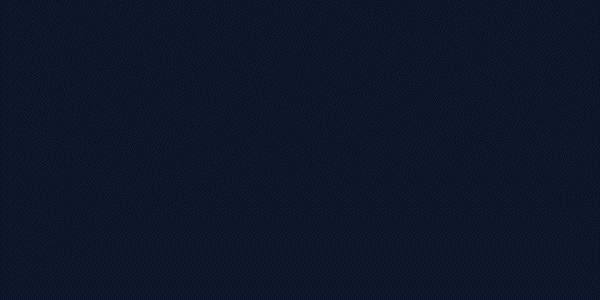As a remote worker, I am always connected to the online world. I am also a person with disabilities (PWD), living in a place with few public amenities to accommodate the disabled. So, I am perpetually at home, working, relaxing, and learning with my blue light filter glasses, earbuds, and my phone in my palm. Naturally, I am immersed in digitalism.
Drowned in the fear of missing out (FOMO), people hop on every digital trend, only for it to flitter away in a matter of days before another trend arrives. I too used to mindlessly consume all of it – before long, it took a toll on me. It might seem like I, a remote worker, am discrediting my rice bowl. I am not. All I am registering here is that too much is unhealthy, and balance is paramount.
After five years of working remotely, I realize it’s not good to be constantly connected. A little FOMO is actually healthy and going off the radar does a lot of good.
By reading this article about why you should do a digital detox when working remotely, I hope you will be inspired to take mountain climbing classes, start gardening in your backyard, or perform other outdoor activities on weekends or after getting off work.
- You lose your grip on the real world.
While remote work depends on the overflow of online information, it also depends on real-world and analog experiences and knowledge. Constant, uninterrupted connection to digitalism can result in losing a sense of space and time, and thus you lose touch with the manifesting environments around you.
When you work on-site, you have opportunities to interact and live in the real world – you commute, take the elevator, go out for lunch, and whatnot. You may still be attached to your phone, but it’s better than getting out of bed and getting straight to work and eating lunch at your home workstation.
I regained my connection with things and the people around me by limiting my online presence. There is something called “sprint” in working remotely that I follow closely. When I “sprint, ” I am fully focused on the task at hand. I don’t check my phone or reply to non-urgent messages from my colleagues on MS Teams. Once I finish the task or when my creative juices to continue working on the task dry up, I reply to my colleagues and then unplug to revitalize my relationship with the physical world and recharge before returning to online work.
- Information overload kills your creativity and independent thought.
Cyberworld manifests as an information overload platform. It’s so saturated with information that you are forced to consume indirect and mildly related information alongside the primary information you require.
When you’re constantly bombarded with excessive information that never ceases from multiple connected gadgets, you are bound to lose your imaginative and independent thinking self. What you can do is curtail your information consumption consciously. Filter what is on-screen and only take what you require, treating the additional information as white noise or even collateral.
- Being constantly connected takes a toll on your memory and attention span.
As a remote worker relying on internet technology, you are bound to be caught up with instant gratification. This, in time, will affect your ability to remember things and shorten your attention span.
It’s important for remote workers to disconnect and recover from the side effects of being plugged in and immerse in real-life activities that boost memory power, and concentration.
After 5 years of remote work, I started reading books and could not concentrate. My hands itched to check my phone; I knew I could not go on like this, as this would cause my work to suffer, and I would slowly lose the power my mind once possessed. Going off the grid is an option I took to bounce back with a stronger mind that remembers and doesn’t stray.
Like me, you can go back to reading paperback books rather than ebooks or listening to audiobooks. Watch Netflix on television, in the living room, not on your work laptop or smartphone. Play physical board games to improve your concentration, strategical acumen, and memory, or regain what you lost in those areas. Keep a physical journal and a note and pen with you. Do your finances on paper instead of an Excel sheet. Keep a check on the hours you spend online. Take long baths to rid the online miasma on you. Call your friends for a meet-up instead of inundating their WhatsApp with impersonal “good morning, then good night” images.
This might earn you the name “old-fashioned,” but you’re evergreen with this balance.
- Your posture suffers because you’re always sitting.
Fun fact: Even if you’re sitting in an ergonomic, posture-supporting chair, sitting, per se, is not an anatomically normal resting position for a human. The anatomically normal resting position for humans is the squat position.
Since we have been sitting on chairs forever, especially in the more developed world, our bodies have become accustomed to this abnormal resting position. And gaming posture is a popular topic among healthcare professionals, gamers, and organizations trying to bring awareness to the importance of body mechanics during long hours of sitting to practice, stream, or compete.
Like gamers, remote workers sit for long hours. Despite maintaining your posture well when sitting and working, it will still affect your spine’s alignment.
So, unplugging, stretching out, and doing posture exercises are essential. As a wheelchair user, I make it a point to lie down on my back and do some yoga asanas that I can manage so I don’t succumb to unhealthy postures when I am sitting and working for hours on end.
If you are already slouching or suffering from backache, stiff neck, and “tech neck,” it’s time for damage control. Consider going to a chiropractor to get “straightened out.” A standing desk is also a good investment for remote workers to maintain good posture.
Protip: Placing your laptop on your lap and working in that position for hours isn’t healthy, especially for long-term remote work. A work desk is a must. Ensure that your shoulders and arms are at a 90-degree angle when you sit to work on your desk, with the monitor positioned straight ahead at eye level. Avoid looking downward as it strains your neck and puts weight on your spine.
- You sleep better.
The blue light emitted by screens can disrupt sleep patterns and negatively affect sleep quality. It’s advised that you don’t look at screens at least an hour before bedtime.
Prepare yourself for a more restful sleep in the evening or hours before bedtime. Like avoiding caffeine six to eight hours before hitting the sack, you should avoid seeing digital devices’ screens before sleeping.
You will be more productive as a remote worker with better sleep hygiene. Since remote work is largely flexible, your productivity is often measured by your output, not how long you sit and stare at your computer screen. Leverage this leeway to get high-quality sleep.
Remote work comes with the disadvantage of never being truly disconnected. Many remote workers, including me, have MS Teams and Outlook applications on our phones. Therefore, it’s good practice to put your phone in airplane mode while sleeping, so that you can sleep undisturbed.
I work for Genashtim Pte Ltd, a 100% remote company that hires disadvantaged people and is firm about its employees taking frequent breaks. CEO and Founder of Genashtim, Thomas Ng, reminded his colleagues that those who don’t take breaks would be watched as closely as those who take too many breaks, resulting in low performance. He is clear about Genashtim’s employees unplugging as needed and not suffering from self-inflicted digital burnout.
- Boost or restore your physical and mental well-being.
Remote workers are more prone to sedentary behavior, screen headaches, and eye strain. It’s also easy to get too comfortable with continuous sitting and looking at the screen for hours on end when you work remotely. This can induce weight gain due to a lack of exercise and demotivation to make healthy food choices. The propensity to order food or eat readymade processed food is high among remote workers.
Digital detox helps you take time off screens, reducing the risk of eye strain and screen headaches. Unplugging also allows you to engage in physical activities, exercise, cook at home using the choicest ingredients, and spend time outdoors, promoting overall physical well-being.
Remote work is demanding – since I am not physically present, I need to work harder and show results to gain my superiors’ trust. This is entirely stressful. Remote work productivity trackers trigger anxiety and intimidation and can cause immense burnout. People think remote work is easier – this is a myth.
Taking a break from the mental demands of work and technology promotes relaxation and restores your mental well-being. You can meditate or read self-help books to improve your mental health.
In conclusion…
Be conscious about how much time you spend sitting, staring at the screen, and working from anywhere you are. Set limits to your connected self for optimized health, aptitude, and work-life balance to be a highly productive remote worker.
Remote work is revolutionizing work as we know it. Hire remote workers or become one through JEDI Jobs, an online job portal that empowers disadvantaged communities, especially PWDs, by providing them with sustainable and gainful employment.
Register here, browse through remote jobs from global employers, and embark on your incredible remote work journey. Hire highly skilled remote workers from all over the world and boost your company’s diversity and inclusion efforts by registering here.


Leave a Reply